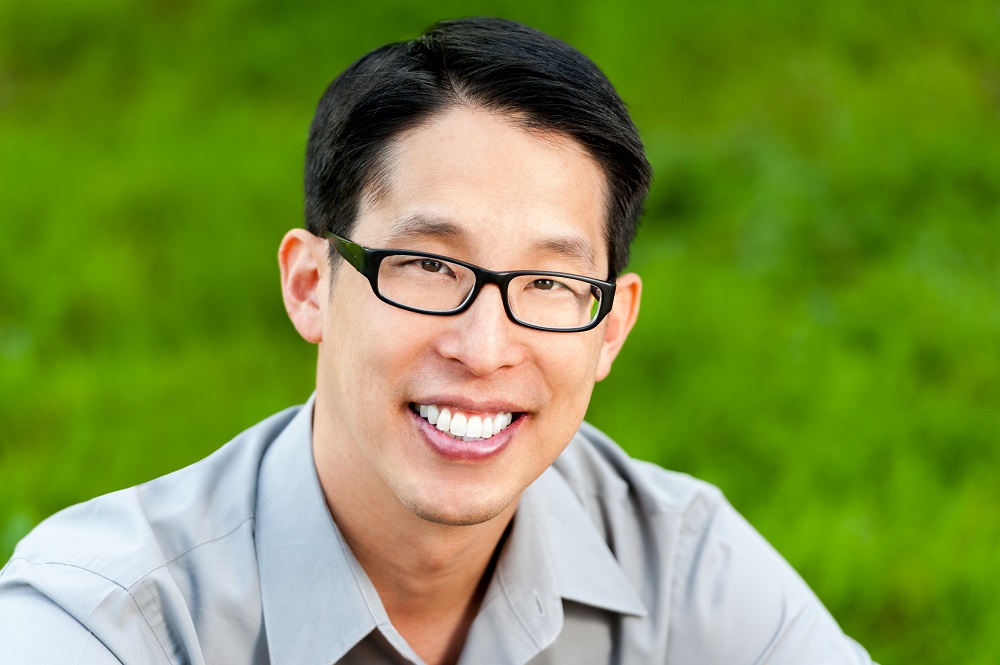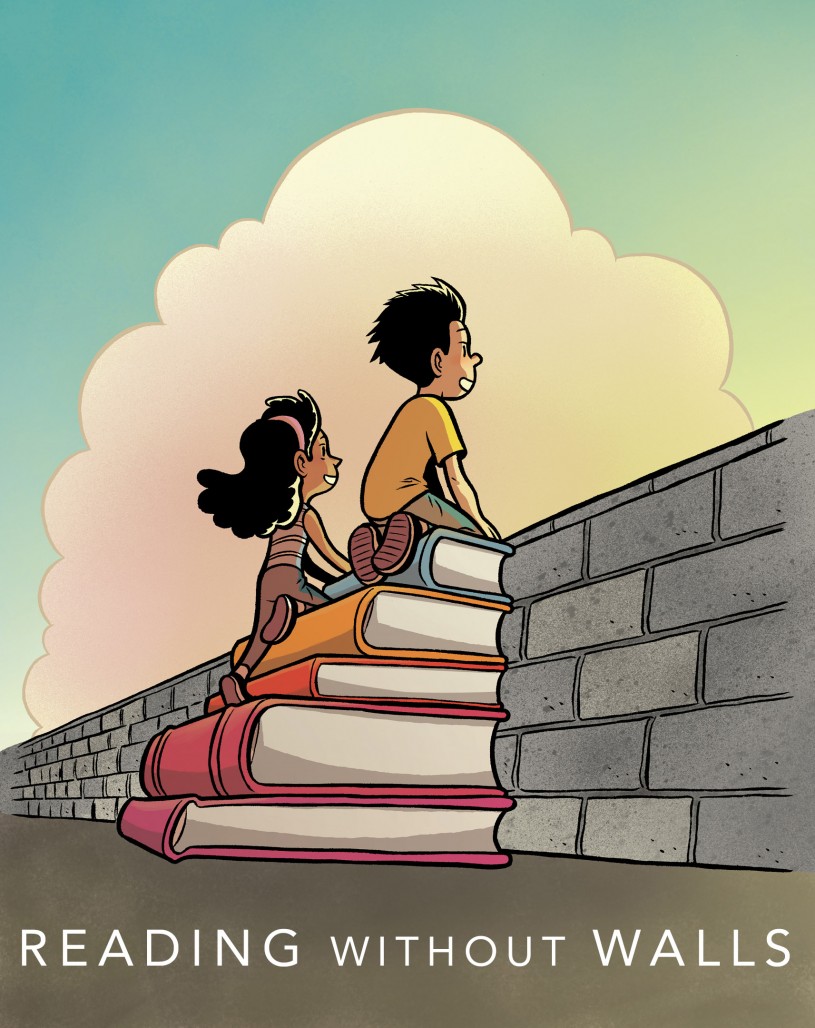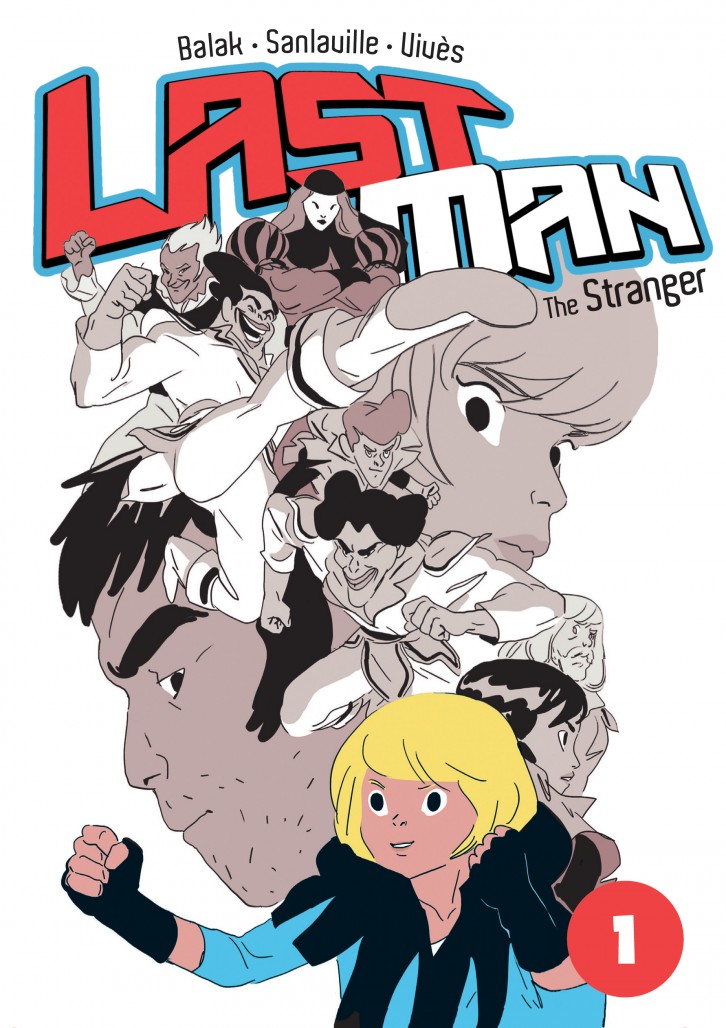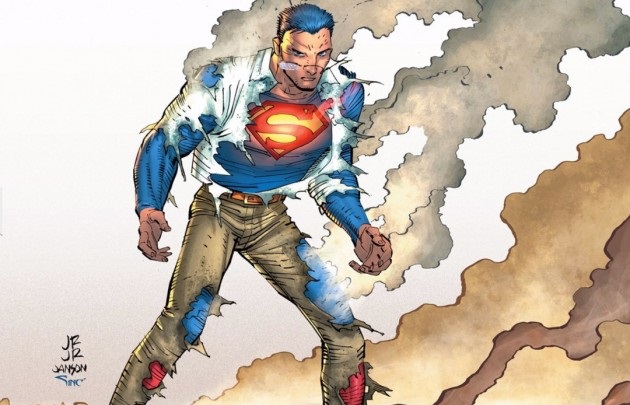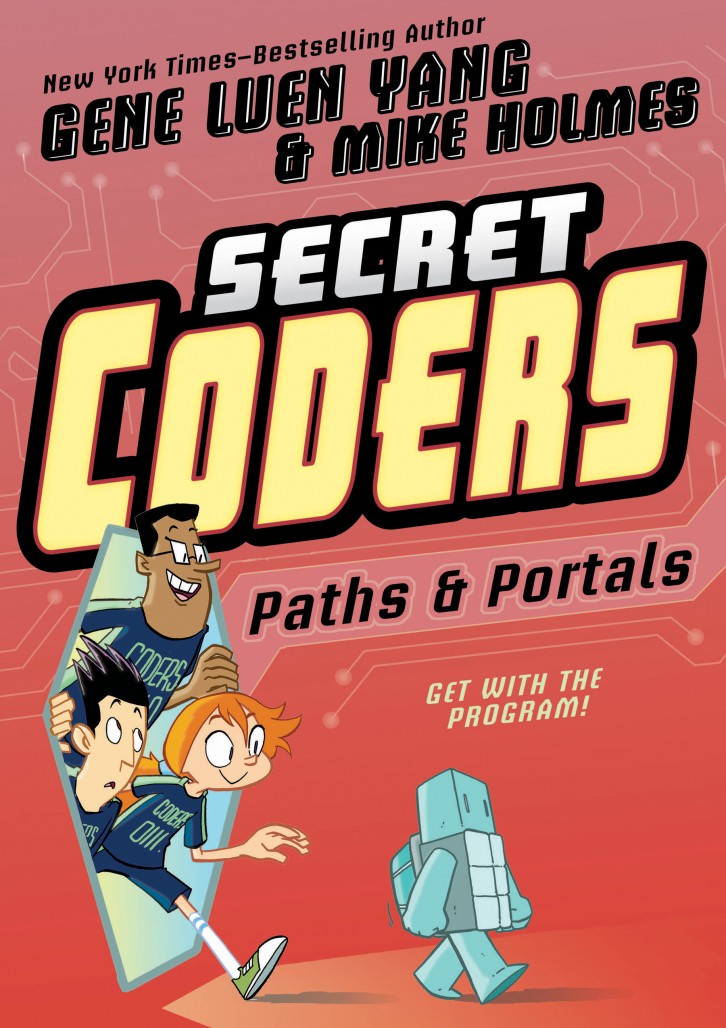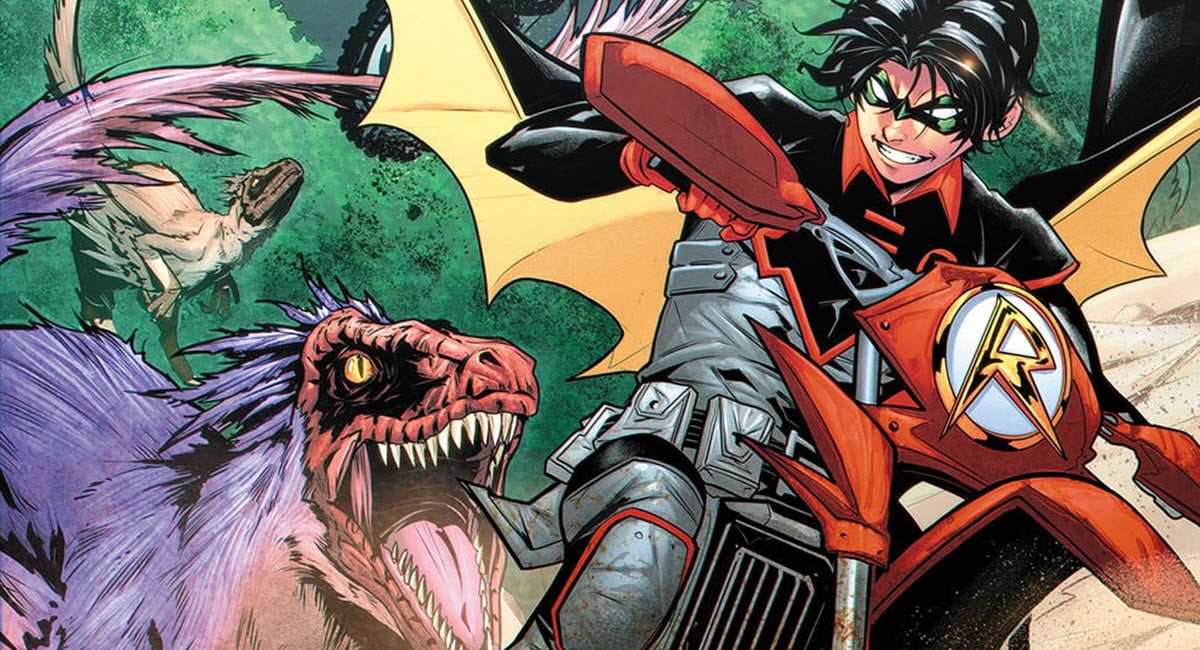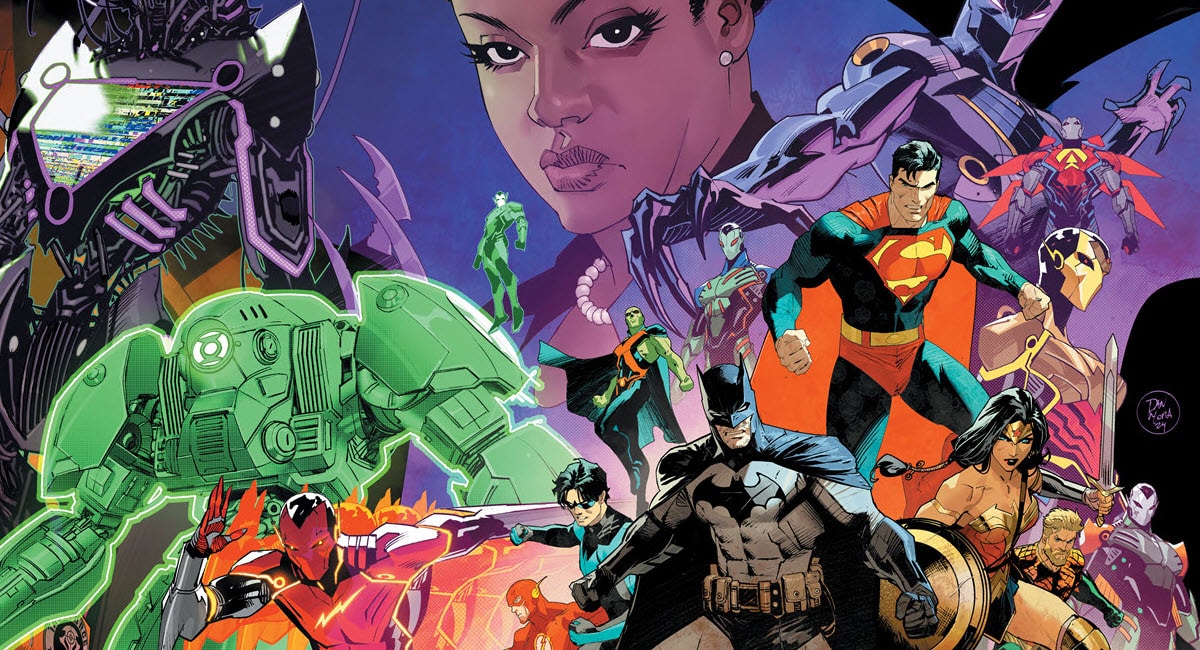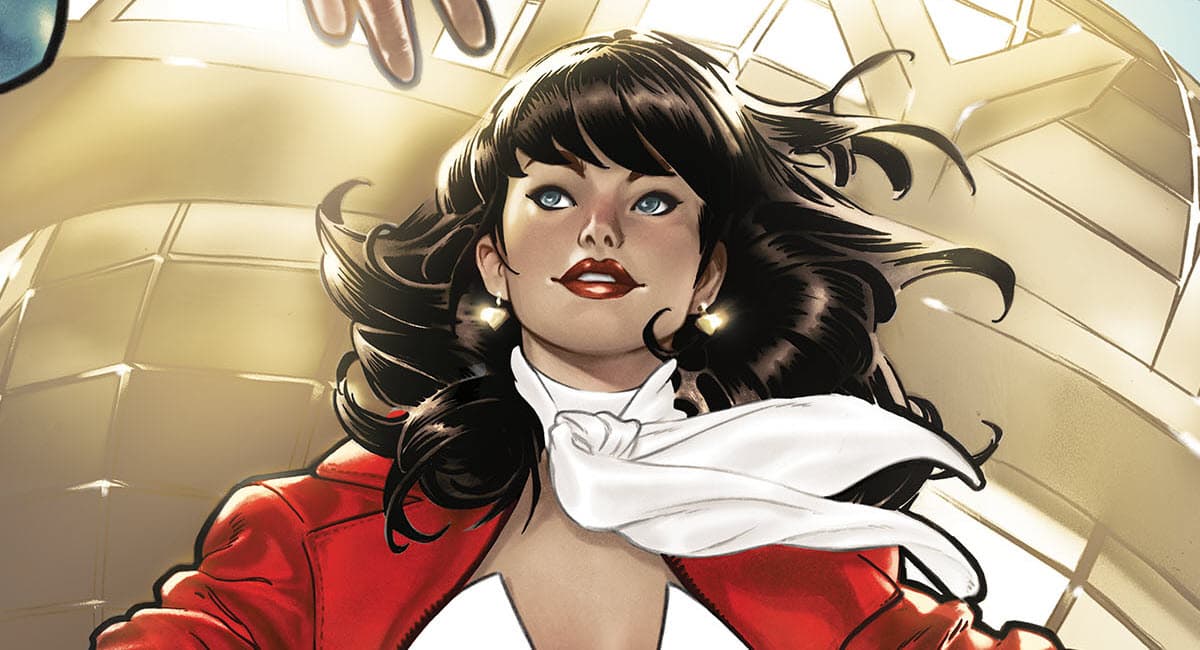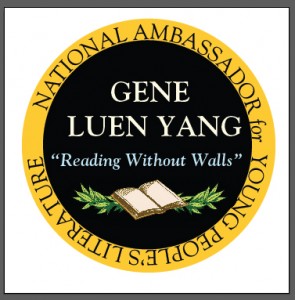
A former teacher, Yang has extensive knowledge connecting with and enriching the lives of children. American Born Chinese was the first graphic novel shortlisted for the National Book Award, and Yang is the first cartoonist to be named to the position of ambassador since its conception in 2008. He will hold the role for two years and make appearances at schools and libraries across the country. We recently sat down with Yang to discuss how he plans to use this new position to encourage young people to read and to encourage Americans at large to further embrace sequential storytelling.
Alex Lu: How did you discover that had been named ambassador?
Gene Luen Yang: My editor, Mark Siegel, called me in the car back in October. I was on my way to a middle school to talk about Secret Coders when I found out.
Lu: Did you know that you were a nominee prior to that call?
Yang: Nope! Mark’s call was the first time I had heard about it. I feel very lucky.
Lu: Since October, you’ve had a few months to let the news sink in. How have you been preparing for your role between then and now?
Yang: I had a meeting with the Children’s Book Council and First Second. We’re basing my work as Ambassador for Young People’s Literature off a platform entitled “Reading Without Walls.” The basic goal behind the program is for kids to explore the world through books outside of their comfort zone.
There are three core elements to the program:
- Read books about people who don’t look like you. If they feature people from another race or culture on the cover, for example.
- Read books about topics you find intimidating. I’m especially interested in getting kids to read books that focus on STEM related topics, as I’ve found a lot of kids don’t get much exposure to those types of works.
- Read books in different formats. When I was younger, I found that there were many kids who didn’t read comics and only read novels. Nowadays, I see a lot of kids who only read comics and don’t read novels. Basically, if you find yourself reading a lot of books in one format, switch it up!
Lu: What have you been reading recently?
Yang: I just finished up the fourth volume of Last Man, from First Second, not to be confused with Y: the Last Man! It’s this series they’ve imported over from France about a world where society is basically based around professional wrestling. It has a loose kinetic style that’s a little manga-esque and follows this young boy who wants to take on the world and his mother who wants to protect her son from the world.
Lu: It sounds a lot like Pokemon, with pro wrestling!
Yang: Yeah, yeah, exactly! But people are the ones fighting.
I’ve also been reading Nimona, by Noelle Stevenson. She’s had a great year between that and Lumberjanes. Then, in terms of novels, I’ve been reading Bone Gap by Laura Ruby. It’s about a mysterious town where a girl has gone missing, and there’s a dangerous stranger on the loose. The book has this great sense of magic to it.
Lu: You were a professional coder before you moved into teaching computer science. What’s the story behind your entrance to teaching? What made you decide to quit your coding job and say, “teaching is my calling?”
Yang: I grew up in a Chinese Catholic community, and after I had been coding for a few years– this was back when I was really young– I decided to go on a silent retreat. This was the only one I have ever been on, but I basically went with a bunch of other young people from the community at the start of their careers and when I came back, I decided to make a change.
Lu: What has being an educator taught you about storytelling, especially when it comes to writing for children?
Yang: So, I was a teacher for seventeen years, and over time I’ve learned that teaching and storytelling have a lot in common. Being a writer and being a teacher both require you to put yourself in the role of the other. As a teacher, you have to picture yourself as a student consuming the information you’re feeding them. As a writer, you have to imagine yourself as the reader.
I have four kids, and when I write they’re my test audience. They really help a lot. On Secret Coders, for example, whenever I wrote a section I would show it to them and ask “do you understand what I’m trying to teach you through this scene?”
Lu: Do you think comics have a strong role to play in education?
Yang: Definitely, definitely. In America, comics had a negative stereotype for a long time. That’s changing now, but we still have a long way to go. In Japan, there are shelves and shelves of educational comics– books that are there to teach as much as entertain. There are not nearly as many of these comics in America, so part of my work has been focused on filling in that gap.
Lu: When you write for children, do you come across any challenges that you don’t face when you’re writing for adults?
Yang: I find that when children come to stories, they have fewer assumptions than adults do, as they have less experience with the world. That can be both a challenge and a blessing, because that means while a child might understand less than an adult, they might also might accept more things about the world the storyteller creates than an adult would.
Lu: What types of events will you be attending as ambassador for young people’s literature?
Yang: I have four events planned for the near future. First up is my inauguration. Then, I’ll be hosting the Children’s Choice Book Awards. After that, I have two other appearances planned, but throughout my tenure as ambassador, I’ll be traveling around to schools and libraries across the country.
Lu: Do you think Barack Obama might show up to your inauguration?
Yang: No way!!! I’m kinda hoping he shows up all ninja-like, though. That’d be cool!
Lu: Will the heavy amount of travelling you’ll be doing have an impact on your ability to write ongoing comics such as Superman?
Yang: The thing is, I actually already do a lot of travelling as a writer, so the only difference now is that instead of promoting just my books, I’ll be promoting books in general! I’m pretty used to writing on planes at this point.
Lu: Awesome! In that case, are you working on anything new with DC to promote Superman in the wake of your inauguration?
Yang: Well, the thing is that I wasn’t allowed to say anything about this, even to DC, until this week! We’ve started trading emails now, though. I’m excited because, selfishly, I see my role partially as an opportunity to get superhero comics into the hands of young readers.
I grew up on superhero comics, but nowadays I don’t see a lot of kids reading that kind of work. I don’t want their only exposure to these characters to be from the movies.
Lu: Growing up, who were your favorite superheroes?
Yang: You know, it’s kind of funny given that I work with DC now, but growing up, I was way more of a Marvel fan! I love characters like the Fantastic Four and Spider-Man. But in DC, I love the goofy version of the Justice League that read like a sitcom and featured offbeat characters like Blue Beetle. I also love J.M. Demateis’ run on Dr. Fate.
Lu: One of unique things about Superman as a character that’s been brought to the fore more and more over the years– I believe you’ve mentioned it as well– is his role as an immigrant. Is that something you’re trying to bring more to the fore as your run on the series continues?
Yang: Definitely. It’s a little tricky, since there are currently four titles in the Superman line and they all have to work together. It’s my first time writing for a shared universe, and there are a lot of constraints, especially now as we’re heading into our first crossover event. That said, I’m trying to do some stuff that explores his role as an immigrant.
My pet theory about Superman is that the reason why he is the perfect citizen is because he doesn’t want anyone to question his citizenship. It’s something I think a lot of Asian Americans face as well.
Lu: Right, as model minorities. Do you think that reasoning encourages Superman to do more or less for humanity? To repress himself?
Yang: Well, it creates this tension. In the end though, I think Superman will do whatever he can for humanity because he’s just a good individual.
Lu: Clearly, you have a lot of thoughts on superheroes, but what is it about First Second that’s made them the publisher of choice for you?
Yang: Well, they’re amazing. They’ve been incredibly supportive of me from the start until now. They have a unique position in the comics field, as they have a foot in the library market, the bookstore market, and the direct market.
Basically, First Second is kind of like my home.
Lu: Are you working on anything with them now?
Yang: Yeah. We’re getting ready to launch a book. It doesn’t have a title yet, but to create the book I followed and researched a real life high school basketball team for a year. I focused on six players: two Asian Americans, 1 Chinese exchange student, 1 Sikh student, 1 super tall white kid, and one black player. The last guy is actually Ivan Rabb. I don’t know if you follow basketball, but he’s playing for the California Golden Bears in college right now. He’ll probably be in the NBA in the next few years.
Lu: Basketball is a really interesting subject for a comic. I honestly didn’t expect that. What drew you to to the sport?
Yang: Well, I played a little basketball when I was young and I was really bad. Then I started reading about it and researching it though, and found out the sport has a really interesting history. Especially racially, as it’s a sport played professionally predominantly by black Americans.
When I was doing research for this book, I found out that the sport is a hotbed for racial animosity. Because the players are predominantly black, the racism against them is suppressed. However, while I was following this high school team, the Sikh kid took a ton of crap, because he was the loner. People called him “terrorist” and “Osama bin Hoopin'”– you know, things that weren’t even accurate. He wasn’t middle eastern, he was sikh.
You know, back in the day, baseball and football were American pastimes but basketball was basically considered a poor person’s sport. It was primarily played in inner cities. It was ported over to China by Catholic missionaries.
Lu: Really? I didn’t know that. My mom used to talk to me about her cousins, who played for the Chinese national team at some point, but I didn’t realize the importation had religious roots.
Yang: Yeah. The sport really took root in Asian countries. During Mao’s rule, basketball was the only western indulgence he allowed. Dennis Rodman and the Harlem Globetrotters are some of the only Americans to have been invited to North Korea.
Lu: Why do you think Asian cultures have developed such a strong attachment to the sport? I remember there was a rumor around the time of Kim Jong-Il’s death that Kim Jong-un didn’t want to become the head of North Korea. He wanted to play for the NBA instead.
Yang: Yeah, yeah, I remember that! I honestly don’t know why. It’s a really interesting cultural phenomenon.
Gene Luen Yang is being inaugurated as national ambassador of young people’s literature in Washington D.C. today, January 7th, 2016. You can follow the events of the ceremony on social media beginning at 11:00 AM EST using the hashtag #natamb.


